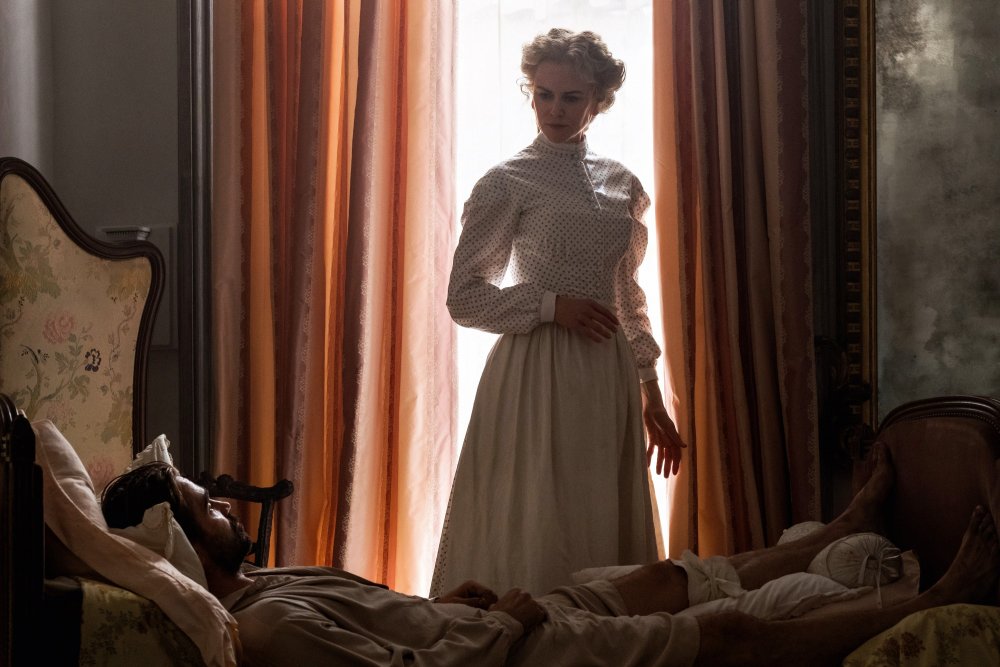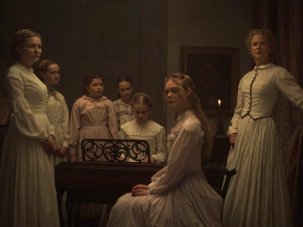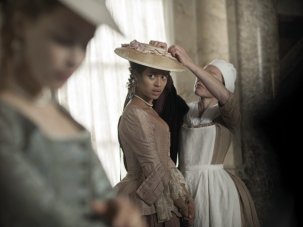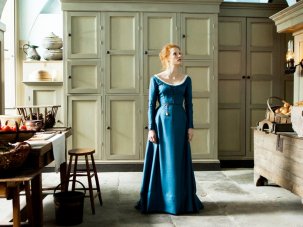Spoiler alert: this review reveals a plot twist
The poster is the tip-off. Where Clint Eastwood and his revolver loomed aggressively in silhouette for Don Siegel’s 1970 The Beguiled, in the poster for Sofia Coppola’s new version, three demure women stand over a supine male, each of their faces pointing away, suggesting this film’s own secret agenda.
USA 2017
Certificate 15 93m 38s
Director Sofia Coppola
Cast
Corporal McBurney Colin Farrell
Miss Martha Nicole Kidman
Edwina Kirsten Dunst
Alicia Elle Fanning
Amy Oona Laurence
Jane Angourie Rice
Marie Addison Riecke
Emily Emma Howard
[1.66:1]
UK release date 14 July 2017
Distributor Universal Pictures International UK & Eire
thebeguiledmovie.co.uk
► Trailer
Based on Thomas Cullinan’s novel rather than Siegel’s lurid psychodrama, this clever, well-mannered piece of Southern Gothic is resolutely female-focused. Coppola’s movies have already displayed a fascination with women’s enclosed worlds: the shut-ins of The Virgin Suicides (1999), the gilded Versailles cage in Marie Antoinette (2005). Here, at the Farnsworth Seminary in Virginia, where wounded Union soldier John McBurney is reluctantly hidden by a pair of teachers and their five girl charges, a once grand estate has become a human henhouse tucked alongside the shifting frontline of the Civil War. Inculcating in its pupils the pointless arts of well-bred Southern femininity, this is a school where French lessons use only the feminine declensions.
Coppola, who gives the seminary a fine if slightly overstyled sense of place, is sharp-eyed about its dual function as sanctuary and prison, especially for spinster teacher Edwina (a softly yearning Kirsten Dunst). A long-time Coppola collaborator and repeat captive in her enclosed worlds, Dunst has a subtlety that’s characteristic of the trademark delicacy the director has carried over into her first genre movie. This light touch extends to Colin Farrell’s McBurney, whose deft flirtations and friendly gestures to the household feel unsettlingly sincere, especially when contrasted with Eastwood’s openly manipulative, cock-of-the-walk seductions.
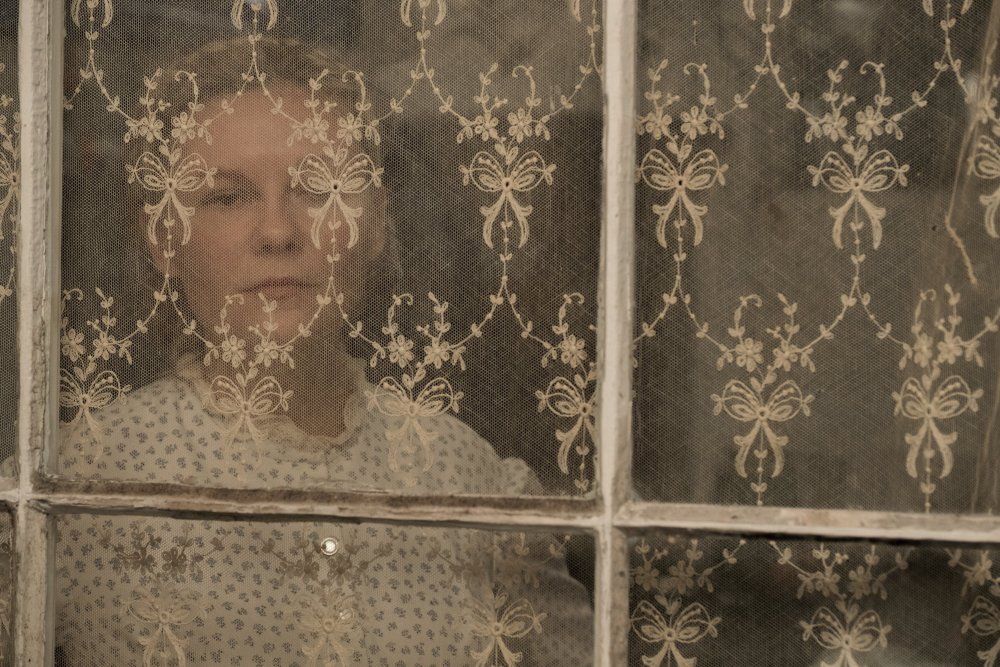
Kirsten Dunst as spinster teacher Edwina
Canny rather than predatory, and lacking Eastwood’s aggressive charisma, he’s not the film’s subject. Instead, he’s an object of desire for the women, offering gentlemanly flirtation for genteel headmistress Martha, romantic rescue for Edwina and an outlet for bold schoolgirl Alicia’s emergent sexuality.
As the girls and women pray, garden or gather round the piano, looking like a sentimental Victorian painting, their separate longings beat under every exchange. Replete with wry double entendres (“Your whole flower garden needs tending”), Coppola’s script has fun with McBurney’s overtures and Martha’s purring or icy rejoinders. Around them it lays out the women’s demure one-upmanship – a simpering dinner-table duel over who is responsible for McBurney’s apple pie is the first sustained skirmish in what will become a fatal rivalry.
Similarly combining an arch wit with an ability to rise to increasingly demanding occasions, Nicole Kidman as steel magnolia Martha gives the film’s powerhouse performance. Far more formidable and resourceful than the abandoned Civil War belle Kidman embodied in Cold Mountain (2003), Martha is able to handle everything from Confederate patrols to an impromptu amputation with a flinty resolve that insists that “bravery is doing what is needed at the time”. But her rigid insistence on veiling her actions in Christian charity and elaborate gentility lets the film show the ruthlessness under her maternal mien.
Most interestingly, Martha’s Southern Lady persona enables the film to explore the duality of the female skills (wound-stitching, nursing, cooking, hospitality) that initially save McBurney. Once he has betrayed the household by bedding Alicia, however, those same skills will be employed along with a poison (traditionally ‘the woman’s weapon’) to end his brief reign of terror.
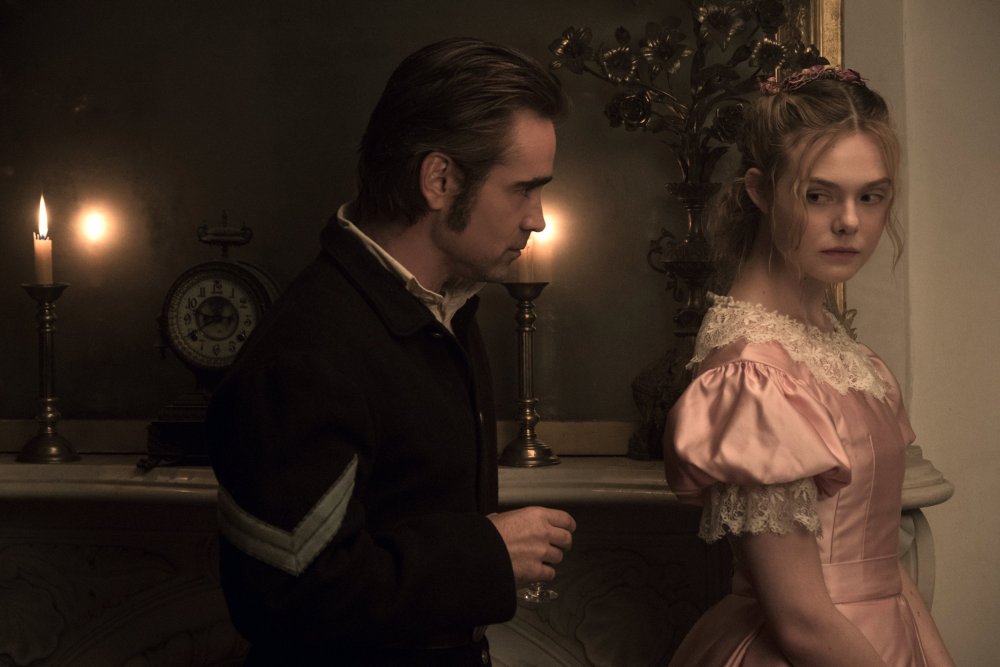
Farrell with Elle Fanning as Alicia
Coppola plots her plot and themes into a rhythmic repeating dance, whose mushroom-picking and formal dinner scenes recur with tense new meanings, and her direction is fluid but purposeful. Rather than employing the drifty, languid pace of her previous films, The Beguiled is concise, even taut, wrapped up in a neat 94 minutes. Yet it’s also richly textured, thanks to cinematographer Philippe Lesourd’s bleached palette and candlelit interiors, the faded grandeur of the exteriors and the misty Spanish-mossed woods that girdle the house.
Without drawing attention to itself, the sound design also adds greatly to the film’s mood, using the fleshy pops of mushroom-picking, the faraway sounds of battle cannon or the faint creak of betraying floorboards to heighten the tension. Indie rockers Phoenix’s sparse, thrumming soundtrack is used sparingly, with a chilling scrap of Monteverdi’s Magnificat included to good effect late on.
If it lacks the juicy, hysterical appetite of Siegel’s original adaptation (there’s no shot here to rival Geraldine Page’s sex-fantasy pietà for shock value), the film has a resolute restraint that pays off in an intriguing ambiguity. Is McBurney seeking long-term refuge, or a roost to rule? That infamous amputation could be either a vindictive ‘castration’ (“You vengeful bitches,” he howls, convinced of it) or a life-saving snap decision. Is this a war between the sexes, and the pitiable Edwina a gender traitor, or is it an assault on a sisterhood? However you choose to read its motives, the film’s haunting ending suggests that, regardless of the battle’s outcome, there are no winners here.
In the August 2017 issue of Sight & Sound
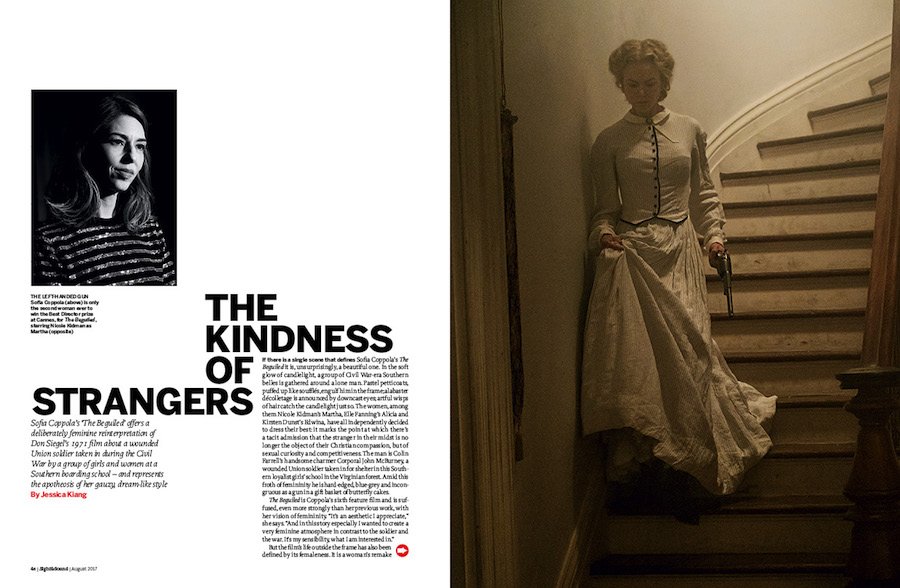
The kindness of strangers
Sofia Coppola’s The Beguiled offers a deliberately feminine reinterpretation of Don Siegel’s 1971 film about a wounded Union soldier taken in during the Civil War by a group of girls and women at a Southern boarding school – and represents the apotheosis of her gauzy, dream-like style. By Jessica Kiang.
-
Sight & Sound: the August 2017 issue

Christopher Nolan on Dunkirk and real film, plus Sofia Coppola on The Beguiled, Jane Campion and Elisabeth Moss on Top of the Lake and Jean-Pierre...
-
The Digital Edition and Archive quick link
Log in here to your digital edition and archive subscription, take a look at the packages on offer and buy a subscription.




